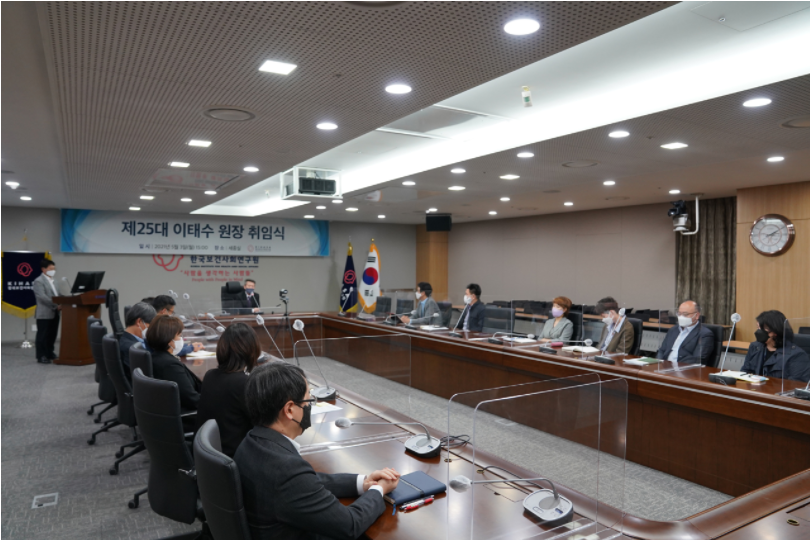Press Release
Inauguration Ceremony of Lee Tae Soo as the 25th President of KIHASA
- Date 2021-05-14
- Hits 478
| The inauguration ceremony of Lee Tae Soo as the 25th president of KIHASA was held at the Sejong Hall, KIHASA on May 3 at 3 p.m. after his appointment had been approved at the 301st provisional BOD meeting of the National Research Council for Economics, Humanities and Social Sciences. The ceremony was conducted in conformity with the social distancing rule. In his inaugural address, president Lee said, “Since the first time I worked with KIHASA on the Working Group for integrating health insurances in 1998, we have worked together on many occasions. So it’s a great honor to serve as the 25th president of KIHASA, and I feel heavy responsibility and a sense of duty.” “I will do my utmost in leading KIHASA, employing all I have acquired along the way as a researcher, as a policy practitioner, as an advocate for welfare rights, and as a person with administrative experiences. I am committed to laying a small building block in the advancement of KIHASA,” said president Lee. |
Pledging an inclusive and democratic leadership, he put forth three strategies for KIHASA as follows:
First, we should find out what the complete form of welfare state is that should be pursued not in this generation only but in the generations to follow, and study how individual policies in different sectors can together contribute to it. Rather than conduct research in a segmented manner, we should develop a global perspective through which we can figure out how policies in different sectors are connected to each other and where they as a whole lead to, trying to identify a common denominator.
Second, we should promote fusion in our research. A welfare system is not a set of social policies only, but one coherent system that is interconnected with the political system, the economic system, and the green system, whose importance is of late well recognized. Also, to show what role social policy, the core of redistribution policy, should play in response to the current and future challenges facing Korea and what justification and effectiveness it carries, we should be able to provide solid evidence and objective data.
Third, we should develop a strategic approach that will guide us as we align our short- to mid-term plans with long-term goals. We should be able to identify risks involved in the designs and implementation of policies and make precautionary policy suggestions based on prospective policy analysis. We should also use the most optimal methods available to actively disseminate our research outcome in which we put our best efforts to our clients--state and local governments, academics and experts, and the general public.


